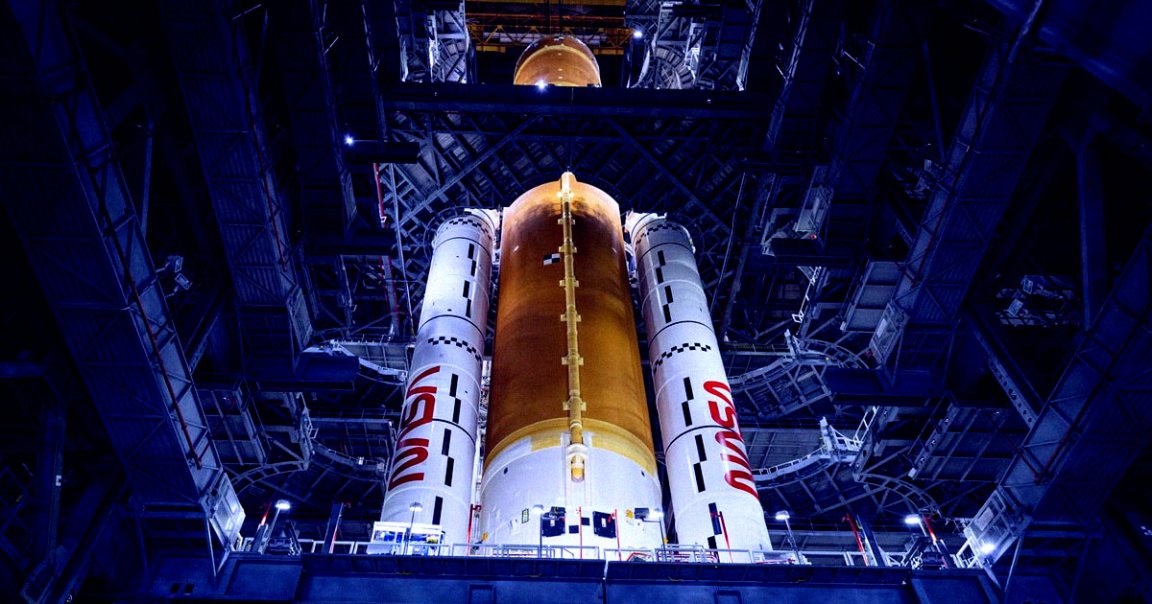
During a Senate Commerce Committee hearing this week, experts warned that the United States is at risk of China beating it to the Moon as NASA’s Artemis program continues to lag behind.
Earlier this month, China’s lunar exploration program tested its “Lanyue” lunar lander at a facility outside of Beijing, declaring that it’s hoping to land the first Chinese astronauts on the Moon before the end of the decade. That’s well within the margin of error of NASA’s first crewed landing attempt, Artemis 3, which is currently scheduled for no earlier than mid-2027.
China has also carried out a pad-abort test for its next-gen astronaut capsule and a static fire of its Long March 10 Moon rocket.
During this week’s hearing, lawmakers emphasized the importance of the US staying competitive in the space race. It’s an especially pertinent topic given that NASA is facing brutal budget cuts under Trump, triggering a major outcry and efforts among politicians to rescue the agency.
The stakes during this decade’s race to return to the Moon are substantial, to say the least.
“The countries that get there first will write the rules of the road for what we can do on the Moon,” aerospace manufacturer Redwire’s president of civil and international space, Mike Gold, told the Committee, as quoted by Space.com.
While the Trump administration has repeatedly emphasized that its priority is to send astronauts to the Moon and Mars, massive budget cuts have thrown NASA’s operations into chaos.
“Getting cast to and fro from one administration to the next has been very damaging over time, and that’s the challenge with NASA,” former NASA administrator Jim Bridenstine — who was nominated by Trump during his first term — told the convened lawmakers. “What we do is multi-decadal in nature, and sometimes it’s multi-generational, and you can’t just have it go back and forth.”
The agency’s Space Launch System and Orion capsule, meant to carry the first American astronauts to the lunar surface in over half a century, has long ago fallen woefully behind schedule and vastly over budget.
NASA has its work cut out to realize its plans for Artemis 3. For one, the hardware to land American astronauts on the Moon doesn’t exist yet. NASA is hoping to tap a Human Landing System variant of SpaceX’s Starship to deliver a crew from lunar orbit to the surface during the 2027 mission. But the enormous rocket’s development has encountered significant technical setbacks and has yet to successfully launch into space and subsequently land in one piece.
To Bridenstine, putting all of its eggs in SpaceX’s basket could have major consequences.
“Unless something changes, it is highly unlikely the United States will beat China’s projected timeline,” he said during this week’s hearing.
Experts also warned that the Trump administration’s decision to nix NASA’s planned Gateway space station orbiting the Moon could cost the agency billions, with Gold arguing that “turning away from Gateway now” would “force our international allies to seek partnerships with America’s geopolitical rivals.”
Making matters worse is Trump’s proposed 2026 budget for NASA, which would slash vast swaths of the agency’s scientific efforts, which could easily have knock-on effects for its Artemis program.
“We need people working on Artemis — not working on their resumes,” Coalition for Deep Space Exploration CEO Allen Cutler, said during this week’s hearing, as quoted by Space.com.
More on China’s Moon program: China’s Getting Ready to Land Astronauts on the Moon While NASA Flails Helplessly